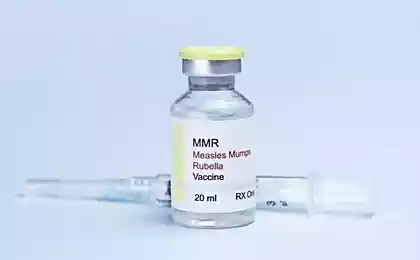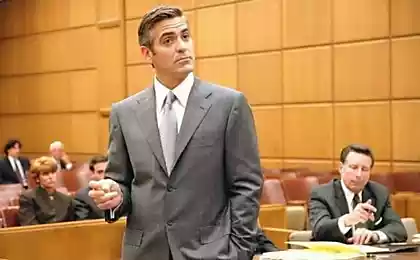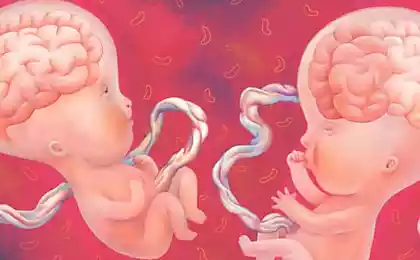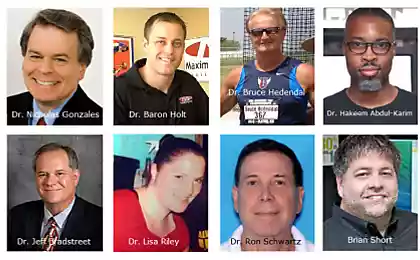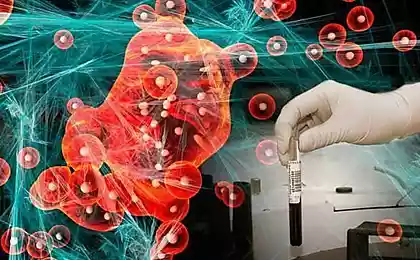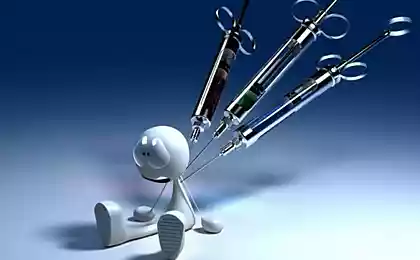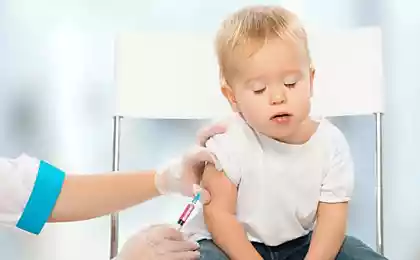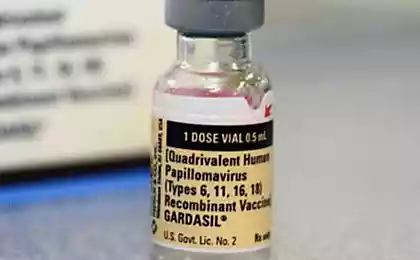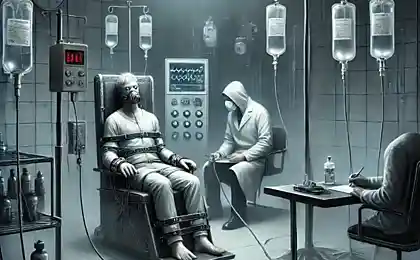517
The MMR vaccine, autism and Wakefield: timeline "setup"
Publish the chronology of events described in the article by Brian deer, How the vaccine crisis was meant to make money.
The big request to inhabitants of the UK, as well as everyone who understands the issue — to point out the error in the title of the different organizations (if any), and to help them to choose the closest (or official, if any) transfer (for UK Legal Aid Board, the Medical Protection Society and other non-translated entities). Oh, and for factual errors, if you will.
Translated and distributed with the written permission of the author, Brian deer.
Ninety seven million seven hundred fifty five thousand four hundred thirty three
So:
October 1988: in the UK starts using the vaccine three-in-one measles, mumps and rubella (MMR), which since 1971 has been successfully applied in the United States. Before the mumps immunization was not performed, were only a few vaccines against measles and rubella.
September 1992: the British Ministry of health is Recalling two brands of MMR after the emergence of research pointing to a few cases of transient post-vaccination mumps meningitis, although occurring less frequently than in real mumps.
January 1994: first there are statements that the MMR vaccine cause problems with the brain and other problems in children. The authors antiprivivochnaya public organization "Justice Awareness and Basic Support" (JABS). Yet no mention of autism and intestinal disorders.
March 1995: Andrew Wakefield, a researcher from the Royal Free medical school (one of the campuses of University College London medical school), makes a patent application for a method of diagnosis of Crohn's disease and ulcerative colitis via detection in the tissues of the colon and biological fluids of measles virus.
September 1995: pediatrician-gastroenterologist John Walker-Smith prepaired with the main part of his team from St. Bart's in the aforementioned campus of the Royal Free medical school.
February 1996: the JABS solicitor, Richard Barr, hires Wakefield for £ 150 an hour plus expenses, in order to maintain a lawsuit against the manufacturers of MMR. This contract is not advertised.
July 1996: in an attempt to prove the connection of the disease with the MMR at the Royal Free medical school admitted the first child. Legal UK Legal Aid Board dedicates to research 55 thousand pounds. This fact is not advertised.
September 1996: Wakefield and his mentor Roy pounder meet medical school administration to discuss market prospects for the new business based on patented Wakefield diagnostic technique.
June 1997: claiming that the measles virus in the MMR composition is a source of problems, Wakefield delivers another patent application, this time on the "safer" monovackzina against measles, as well as drugs for the treatment of autism and inflammatory bowel disease. It is also not as advertised.
February 1998: in the journal the Lancet published an article by a group of authors, including Wakefield, which is based on the 12 clinical observations, the conclusion about the connection between the MMR vaccine and "new syndrome", including autism and inflammatory bowel disease. At a press conference Wakefield calls for the use of the MMR instead of monovalent.
February 1998: a few days after the press conference, Wakefield and business partners meet again with the leadership of the Royal Free medical school, discusses the creation of the company's product development, including intended to replace the attenuated viral vaccine.
February 1999: the company Unigenetics, the Directors of the Wakefield and the Dublin pathologist John O'leary. The company receives from the UK Legal Aid Board 800 thousand pounds on a study of samples collected from children seen at the Royal Free medical school in the Department of Dr. Walker-Smith.
December 1999: the new head of the Royal Free medical school mark PIP challenges the business scheme Wakefield and reminds him that the research results must be reproduced.
January 2001: after Wakefield publishes a regular review of its evidence and reiterated the call for use of monovalent, The Daily Mail and other publications, working with the JABS and started a campaign in support of it.
October 2001: Hafilda asked to leave Royal Free medical school, after the failure of attempts to conduct large-scale controlled study confirming his claims to MMR.
December 2001: the followers of Wakefield "substitute" Prime Minister Tony Blair, arguing that he had not planted his youngest son Leo's MMR vaccine. Blair remained silent at first, and then refutes this assertion.
May 2002: in continuation of the media campaign, carried out mainly by the publishing Mail and Telegraph groups, the magazine Private Eye issues a special room entirely created in cooperation with families who are involved in a lawsuit against the manufacturers of vaccines.
January 2003: the vaccine coverage for MMR among 2 year olds falls to 78.9%. The Ministry of health stresses that for maintaining population immunity, this figure should not be below 92%. In some areas of London coverage below the national average two times.
September 2003: The Legal Services Commission stops funding process at the suit of Richard Barr after the plaintiff's lawyers provided the Commission with a report which failed to produce evidence that MMR causes autism.
February 2004: newspaper the Sunday Times for the first time divulge the information that the study, whose results were published in The Lancet, was funded by the Legal Aid Board and that many children of the research participants were from families of participants of the lawsuit against the manufacturers of MMR. Editor in chief The Lancet Richard Horton rejects these more serious charges against the authors, which were later proven in the investigation to the General medical Council.
March 2004: 10 of the 13 authors of an article published in The Lancet in 1998, withdrew their signatures and refuse the interpretation of the results, under which was discovered a link between MMR, enterocolitis and regressive disorders in the nervous system. Wakefield among these 10 there.
November 2004: in the transmission of Dispatches broadcaster Channel 4 will appear on a patent Wakefield on monovaccine, and that despite his claim that health problems are caused by a virus measles part of MMR, molecular analysis conducted in his laboratory, not found in the samples traces of the virus.
January 2005: Wakefield, with the support of the Medical Protection Society initiates a lawsuit for libel against The Sunday Times, Channel 4 and the website of journalist Brian deer, claiming that their allegations are false and discrediting it.
March 2005: among a large number of studies that disproved the link between MMR and a "new syndrome", there is one that shows that even after Japan had ceased to vaccinate their children with MMR, and a continued increase in the incidence of autism among them.
October 2005: The high court of London in the face of the judge Go rejects the claim of the Wakefield libel prescribes in the future to sue Brian Deer only in relation to the protection of the "integrity and professionalism".
April 2006: while across the UK recorded a measles outbreak, a message appears on the first in the last 14 years of death from this infection is 13-year-old boy whose family often changed their place of residence.
December 2006: newspaper the Sunday Times publishes information about personal Finance Wakefield to maintain a lawsuit against MMR by Richard Barr in the amount of £ 435643, plus expenses. Pay some doctors from the medical schools Royal Free.
January 2007: two days after the publication of this information Medical Protection Society stops funding the libel case to the address of the Wakefield and agrees to pay to the defendants 800 thousand pounds over and above what is required from them to Wakefield.
July 2007: at a hearing in London, the General medical Council accused of violating professional ethics three of the leading authors of the article in The Lancet: Wakefield, Walker-Smith, and endoscopist Simon Murch.
February 2009: newspaper the Sunday Times alleges that Wakefield "forged" a link between MMR and autism. The fraud denies and complains to the relevant Committee (UK Press Complaints Commission), however, he later withdraws the complaint.
February 2009: in the United States was rejected by the 3 "test" the claim of 5 thousand lawsuits based on the theory of Wakefield about the relationship of MMR and autism. This decision was later supported by the appellate courts in August 2010.
January 2010: the Commission, composed of three doctors and two members of the GMC established factual circumstances of the case and upheld the charges against Wakefield, Walker-Smith and Murch by transferring the case to all three for sentencing.
February 2010: 6 years later after the emergence of claims to The Lancet, the journal fully retracts the article from 1998. Chief editor Richard Horton describes the information contained in the article as "absolutely false" and says that he was deceived.
May 2010: after a 217-day hearing of the General medical Council decides to remove Wakefield and Walker-Smith from the medical register. The third defendant, merch, showed "understanding the situation" and was found not guilty of a serious breach of professional ethics.
Investigation by Brian deer was funded by The Sunday Times newspaper and broadcaster Channel 4. Publication in the BMJ was paid by the magazine. Other sources of funding were not.published
Author: Alexey Vodovozov
P. S. And remember, only by changing their consumption — together we change the world! ©
Join us in Facebook , Vkontakte, Odnoklassniki
Source: uncle-doc.livejournal.com/281530.html
The big request to inhabitants of the UK, as well as everyone who understands the issue — to point out the error in the title of the different organizations (if any), and to help them to choose the closest (or official, if any) transfer (for UK Legal Aid Board, the Medical Protection Society and other non-translated entities). Oh, and for factual errors, if you will.
Translated and distributed with the written permission of the author, Brian deer.
Ninety seven million seven hundred fifty five thousand four hundred thirty three
So:
October 1988: in the UK starts using the vaccine three-in-one measles, mumps and rubella (MMR), which since 1971 has been successfully applied in the United States. Before the mumps immunization was not performed, were only a few vaccines against measles and rubella.
September 1992: the British Ministry of health is Recalling two brands of MMR after the emergence of research pointing to a few cases of transient post-vaccination mumps meningitis, although occurring less frequently than in real mumps.
January 1994: first there are statements that the MMR vaccine cause problems with the brain and other problems in children. The authors antiprivivochnaya public organization "Justice Awareness and Basic Support" (JABS). Yet no mention of autism and intestinal disorders.
March 1995: Andrew Wakefield, a researcher from the Royal Free medical school (one of the campuses of University College London medical school), makes a patent application for a method of diagnosis of Crohn's disease and ulcerative colitis via detection in the tissues of the colon and biological fluids of measles virus.
September 1995: pediatrician-gastroenterologist John Walker-Smith prepaired with the main part of his team from St. Bart's in the aforementioned campus of the Royal Free medical school.
February 1996: the JABS solicitor, Richard Barr, hires Wakefield for £ 150 an hour plus expenses, in order to maintain a lawsuit against the manufacturers of MMR. This contract is not advertised.
July 1996: in an attempt to prove the connection of the disease with the MMR at the Royal Free medical school admitted the first child. Legal UK Legal Aid Board dedicates to research 55 thousand pounds. This fact is not advertised.
September 1996: Wakefield and his mentor Roy pounder meet medical school administration to discuss market prospects for the new business based on patented Wakefield diagnostic technique.
June 1997: claiming that the measles virus in the MMR composition is a source of problems, Wakefield delivers another patent application, this time on the "safer" monovackzina against measles, as well as drugs for the treatment of autism and inflammatory bowel disease. It is also not as advertised.
February 1998: in the journal the Lancet published an article by a group of authors, including Wakefield, which is based on the 12 clinical observations, the conclusion about the connection between the MMR vaccine and "new syndrome", including autism and inflammatory bowel disease. At a press conference Wakefield calls for the use of the MMR instead of monovalent.
February 1998: a few days after the press conference, Wakefield and business partners meet again with the leadership of the Royal Free medical school, discusses the creation of the company's product development, including intended to replace the attenuated viral vaccine.
February 1999: the company Unigenetics, the Directors of the Wakefield and the Dublin pathologist John O'leary. The company receives from the UK Legal Aid Board 800 thousand pounds on a study of samples collected from children seen at the Royal Free medical school in the Department of Dr. Walker-Smith.
December 1999: the new head of the Royal Free medical school mark PIP challenges the business scheme Wakefield and reminds him that the research results must be reproduced.
January 2001: after Wakefield publishes a regular review of its evidence and reiterated the call for use of monovalent, The Daily Mail and other publications, working with the JABS and started a campaign in support of it.
October 2001: Hafilda asked to leave Royal Free medical school, after the failure of attempts to conduct large-scale controlled study confirming his claims to MMR.
December 2001: the followers of Wakefield "substitute" Prime Minister Tony Blair, arguing that he had not planted his youngest son Leo's MMR vaccine. Blair remained silent at first, and then refutes this assertion.
May 2002: in continuation of the media campaign, carried out mainly by the publishing Mail and Telegraph groups, the magazine Private Eye issues a special room entirely created in cooperation with families who are involved in a lawsuit against the manufacturers of vaccines.
January 2003: the vaccine coverage for MMR among 2 year olds falls to 78.9%. The Ministry of health stresses that for maintaining population immunity, this figure should not be below 92%. In some areas of London coverage below the national average two times.
September 2003: The Legal Services Commission stops funding process at the suit of Richard Barr after the plaintiff's lawyers provided the Commission with a report which failed to produce evidence that MMR causes autism.
February 2004: newspaper the Sunday Times for the first time divulge the information that the study, whose results were published in The Lancet, was funded by the Legal Aid Board and that many children of the research participants were from families of participants of the lawsuit against the manufacturers of MMR. Editor in chief The Lancet Richard Horton rejects these more serious charges against the authors, which were later proven in the investigation to the General medical Council.
March 2004: 10 of the 13 authors of an article published in The Lancet in 1998, withdrew their signatures and refuse the interpretation of the results, under which was discovered a link between MMR, enterocolitis and regressive disorders in the nervous system. Wakefield among these 10 there.
November 2004: in the transmission of Dispatches broadcaster Channel 4 will appear on a patent Wakefield on monovaccine, and that despite his claim that health problems are caused by a virus measles part of MMR, molecular analysis conducted in his laboratory, not found in the samples traces of the virus.
January 2005: Wakefield, with the support of the Medical Protection Society initiates a lawsuit for libel against The Sunday Times, Channel 4 and the website of journalist Brian deer, claiming that their allegations are false and discrediting it.
March 2005: among a large number of studies that disproved the link between MMR and a "new syndrome", there is one that shows that even after Japan had ceased to vaccinate their children with MMR, and a continued increase in the incidence of autism among them.
October 2005: The high court of London in the face of the judge Go rejects the claim of the Wakefield libel prescribes in the future to sue Brian Deer only in relation to the protection of the "integrity and professionalism".
April 2006: while across the UK recorded a measles outbreak, a message appears on the first in the last 14 years of death from this infection is 13-year-old boy whose family often changed their place of residence.
December 2006: newspaper the Sunday Times publishes information about personal Finance Wakefield to maintain a lawsuit against MMR by Richard Barr in the amount of £ 435643, plus expenses. Pay some doctors from the medical schools Royal Free.
January 2007: two days after the publication of this information Medical Protection Society stops funding the libel case to the address of the Wakefield and agrees to pay to the defendants 800 thousand pounds over and above what is required from them to Wakefield.
July 2007: at a hearing in London, the General medical Council accused of violating professional ethics three of the leading authors of the article in The Lancet: Wakefield, Walker-Smith, and endoscopist Simon Murch.
February 2009: newspaper the Sunday Times alleges that Wakefield "forged" a link between MMR and autism. The fraud denies and complains to the relevant Committee (UK Press Complaints Commission), however, he later withdraws the complaint.
February 2009: in the United States was rejected by the 3 "test" the claim of 5 thousand lawsuits based on the theory of Wakefield about the relationship of MMR and autism. This decision was later supported by the appellate courts in August 2010.
January 2010: the Commission, composed of three doctors and two members of the GMC established factual circumstances of the case and upheld the charges against Wakefield, Walker-Smith and Murch by transferring the case to all three for sentencing.
February 2010: 6 years later after the emergence of claims to The Lancet, the journal fully retracts the article from 1998. Chief editor Richard Horton describes the information contained in the article as "absolutely false" and says that he was deceived.
May 2010: after a 217-day hearing of the General medical Council decides to remove Wakefield and Walker-Smith from the medical register. The third defendant, merch, showed "understanding the situation" and was found not guilty of a serious breach of professional ethics.
Investigation by Brian deer was funded by The Sunday Times newspaper and broadcaster Channel 4. Publication in the BMJ was paid by the magazine. Other sources of funding were not.published
Author: Alexey Vodovozov
P. S. And remember, only by changing their consumption — together we change the world! ©
Join us in Facebook , Vkontakte, Odnoklassniki
Source: uncle-doc.livejournal.com/281530.html
